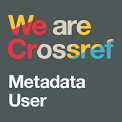Reciprocal Teaching Strategy on Reading Comprehension: A Review for Prospective Teachers
DOI:
https://doi.org/10.51574/ijrer.v1i2.339Keywords:
Reciprocal Teaching, Reading Comprehension, Prospective TeachersAbstract
The focus of this research was to use the reciprocal teaching strategy to increase prospective teachers reading comprehension in the sixth semester of English education at IAI As'adiyah Sengkang. A pre-experimental approach with pretest and posttest design was used by the researcher. Using the cluster random sampling technique, a total of 13 people were included in the sample. This study used a 20-item multiple-choice reading test as the research tool. Pre-test and post-test data were obtained. The data analysis revealed that the mean score of prospective teachers pre-tests was 59, 29 and the mean score of prospective teachers post-tests was 77,62. It was discovered that after undergoing reciprocal teaching strategy treatment, the prospective teachers reading comprehension improved (α < 0.05). The researcher found that a reciprocal teaching strategy was appropriate in teaching reading comprehension at IAI As'adiyah Sengkang's sixth semester of English education based on the results of data analysis. Reciprocal teaching strategy can be used as an alternative strategy in the teaching and learning process by English teachers and other scholars.
References
Ahmadi, M. R., & Gilakjani, A. P. (2012). Reciprocal Teaching Strategies and Their Impacts on English Reading Comprehension. Theory & Practice in Language Studies, 2(10).
Alfassi, M., Weiss, I., & Lifshitz, H. (2009). The efficacy of reciprocal teaching in fostering the reading literacy of students with intellectual disabilities. European Journal of Special Needs Education, 24(3), 291-305. https://doi.org/10.1080/08856250903016854
Atayeva, M., Putro, N. H. P. S., Kassymova, G., & Kosbay, S. (2019). Impact of reading on students’ writing ability. In Materials of International Practical Internet Conference “Challenges of Science (Vol. 144, No. 2, pp. 5-13).
Brevik, L. M. (2019). Explicit reading strategy instruction or daily use of strategies? Studying the teaching of reading comprehension through naturalistic classroom observation in English L2. Reading and writing, 32(9), 2281-2310. https://doi.org/10.1007/s11145-019-09951-w
Burns, A., & Siegel, J. (2018). Teaching the four language skills: Themes and issues. International perspectives on teaching the four skills in ELT (pp. 1-17). Palgrave Macmillan, Cham. https://doi.org/10.1007/978-3-319-63444-9_1
Chang, M. M., & Lan, S. W. (2021). Exploring undergraduate EFL students’ perceptions and experiences of a Moodle-based reciprocal teaching application. Open Learning: The Journal of Open, Distance and e-Learning, 36(1), 29-44. https://doi.org/10.1080/02680513.2019.1708298
Cho, K. S., & Krashen, S. (2019). Pleasure reading in a foreign language and competence in speaking, listening, reading and writing. TEFLIN Journal, 30(2), 231-236. http://dx.doi.org/10.15639/teflinjournal.v30i2/231-236
Choo, T. O. L., Eng, T. K., & Ahmad, N. (2011). Effects of reciprocal teaching strategies on reading comprehension. Reading Matrix: An International Online Journal, 11(2).
Gately, S. E. (2008). Facilitating reading comprehension for students on the autism spectrum. Teaching Exceptional Children, 40(3), 40-45. https://doi.org/10.1177/004005990804000304
Guan, N., Song, J., & Li, D. (2018). On the advantages of computer multimedia-aided English teaching. Procedia computer science, 131, 727-732. https://doi.org/10.1016/j.procs.2018.04.317
Hashey, J. M., & Connors, D. J. (2003). Learn from our journey: Reciprocal teaching action research. The Reading Teacher, 57(3), 224-232.
Khamkhien, A. (2010). Teaching English Speaking and English Speaking Tests in the Thai Context: A Reflection from Thai Perspective. English Language Teaching, 3(1), 184-190. https://eric.ed.gov/?id=EJ1081501
Komariah, E., Ramadhona, P. A. R., & Silviyanti, T. M. (2015). Improving reading comprehension through reciprocal teaching method. Studies in English Language and Education, 2(2), 87-102. https://doi.org/10.24815/siele.v2i2.2693
Lipka, O., & Siegel, L. S. (2012). The development of reading comprehension skills in children learning English as a second language. Reading and Writing, 25(8), 1873-1898. https://doi.org/10.1007/s11145-011-9309-8
Liu, N., Lin, C. K., & Wiley, T. G. (2016). Learner views on English and English language teaching in China. International Multilingual Research Journal, 10(2), 137-157. https://doi.org/10.1080/19313152.2016.1147308
Moghadam, S. H., Zainal, Z., & Ghaderpour, M. (2012). A review on the important role of vocabulary knowledge in reading comprehension performance. Procedia-Social and Behavioral Sciences, 66, 555-563. https://doi.org/10.1016/j.sbspro.2012.11.300
Moleong, L. J. (2014). Metodologi Penelitian Kuantitatif. PT Remaja Rosdakarya, Bandung.
Myers, P. A. (2005). The princess storyteller, clara clarifier, quincy questioner, and the wizard: Reciprocal teaching adapted for kindergarten students. The Reading Teacher, 59(4), 314-324. https://doi.org/10.1598/RT.59.4.2
Navaie, L. A. (2018). The effects of reciprocal teaching on reading comprehension of Iranian EFL learners. Advances in Language and Literary Studies, 9(4), 26-30. http://dx.doi.org/10.7575/aiac.alls.v.9n.4p.26
Oczkus, L. D. (2018). Reciprocal teaching at work: Powerful strategies and lessons for improving reading comprehension. ASCD.
Okkinga, M., van Steensel, R., van Gelderen, A. J., & Sleegers, P. J. (2018). Effects of reciprocal teaching on reading comprehension of low‐achieving adolescents. The importance of specific teacher skills. Journal of research in reading, 41(1), 20-41. https://doi.org/10.1111/1467-9817.12082
Orland, L. (2001). Reading a mentoring situation: One aspect of learning to mentor. Teaching and Teacher Education, 17(1), 75-88. https://doi.org/10.1016/S0742-051X(00)00039-1
Piniel, K., & Albert, A. (2018). Advanced learners’ foreign language-related emotions across the four skills. Studies in Second Language Learning and Teaching, 8(1), 127-147. https://www.ceeol.com/search/article-detail?id=624895
Rastle, K. (2019). The place of morphology in learning to read in English. Cortex, 116, 45-54. https://doi.org/10.1016/j.cortex.2018.02.008
Richards, J. C. (2008). Teaching listening and speaking (Vol. 35, No. 4). Cambridge: Cambridge university press.
Rosnaeni, R., Dj, M. Z., & Nur, H. (2020). Students' Metacognitive Awareness and Reading Comprehension of Narrative Texts. IJEE (Indonesian Journal of English Education), 7(1), 74-86. https://doi.org/10.15408/ijee.v7i1.%2017027
Sadiku, L. M. (2015). The importance of four skills reading, speaking, writing, listening in a lesson hour. European Journal of Language and Literature, 1(1), 29-31. https://doi.org/10.26417/ejls.v1i1.p29-31
Sari, A. W. (2021). The effects of applying reciprocal teaching method to the students’achievement in reading comprehension. English Teaching and Linguistics Journal, 2(2), 179-187. http://dx.doi.org/10.30596%2Fetlij.v2i2.6951
Soonthornmanee, R. (2002). The effect of the reciprocal teaching approach on the reading comprehension of EFL students. RELC Journal, 33(2), 125-141. https://doi.org/10.1177/003368820203300206
Spörer, N., Brunstein, J. C., & Kieschke, U. L. F. (2009). Improving students' reading comprehension skills: Effects of strategy instruction and reciprocal teaching. Learning and instruction, 19(3), 272-286. https://doi.org/10.1016/j.learninstruc.2008.05.003
Stricklin, K. (2011). Hands‐on reciprocal teaching: A comprehension technique. The Reading Teacher, 64(8), 620-625. https://doi.org/10.1598/RT.64.8.8
Wexler, J., Kearns, D. M., Lemons, C. J., Mitchell, M., Clancy, E., Davidson, K. A., ... & Wei, Y. (2018). Reading comprehension and co-teaching practices in middle school English language arts classrooms. Exceptional Children, 84(4), 384-402. https://doi.org/10.1177/0014402918771543
Yang, Y. F. (2010). Developing a reciprocal teaching/learning system for college remedial reading instruction. Computers & Education, 55(3), 1193-1201. https://doi.org/10.1016/j.compedu.2010.05.016
Downloads
Published
How to Cite
Issue
Section
License
Copyright (c) 2022 ETDC: Indonesian Journal of Research and Educational Review

This work is licensed under a Creative Commons Attribution-ShareAlike 4.0 International License.














1.png)













